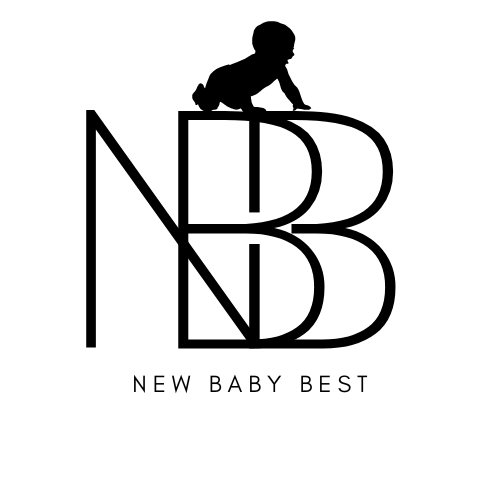Have you ever wondered when it’s the right time to start using a baby nasal saline spray? If so, you’re not alone. Many parents are unsure about when to introduce this helpful tool. But fret not! In this article, we will shed light on the ideal age to begin using a baby nasal saline spray, providing you with valuable insights and guidance to ensure your little one breathes easier. So, let’s get started and find out the perfect time to give your baby some relief!

Benefits of baby nasal saline spray
Clearing nasal congestion
Baby nasal saline spray is highly effective in clearing nasal congestion in infants and toddlers. When babies experience a blocked or stuffy nose, it can make breathing difficult and cause discomfort. Nasal saline spray helps to moisturize the nasal passages, making it easier for the baby to breathe and clear out any excess mucus or congestion.
Preventing sinus infections
Nasal saline spray can play a crucial role in preventing sinus infections in babies. The saline solution helps to flush out any bacteria or allergens that may be present in the nasal passages, reducing the risk of infection. By keeping the nasal passages clear and clean, the spray promotes a healthier environment and reduces the chances of sinus-related complications.
Improving sleep
The discomfort caused by nasal congestion can greatly affect a baby’s sleep quality. By using a baby nasal saline spray, you can alleviate congestion and allow your little one to breathe more easily while sleeping. This improved airflow promotes better sleep and ensures your baby gets the rest they need for healthy development and overall well-being.
Aiding in feeding
Nasal congestion can also interfere with a baby’s ability to breastfeed or bottle-feed comfortably. When their nose is blocked, babies may struggle to breathe while feeding, causing frustration and difficulties in latching and sucking. Using a baby nasal saline spray before feeding can help clear the nasal passages, allowing for smoother and more efficient feeding sessions.
Factors to consider
Age of the baby
The age of the baby is an important factor to consider when deciding to use a nasal saline spray. Newborns have delicate nasal passages, and it is crucial to use a spray specifically designed for their age group. Older babies and toddlers may require a different concentration or delivery method.
Symptoms of nasal congestion
Observing the symptoms of nasal congestion in your baby can help determine the need for a nasal saline spray. Look out for signs such as difficulty breathing, mucus buildup, frequent sneezing, and persistent nasal congestion. If these symptoms persist or worsen, it may be time to consider using a nasal saline spray.
Seasonal allergies
If your baby frequently experiences nasal congestion during certain seasons, it could be an indication of seasonal allergies. Nasal saline spray can provide relief from allergy-related congestion and help manage symptoms. Consult with a pediatrician if you suspect allergies and need guidance on using nasal saline spray for your baby.
Environmental factors
Environmental factors such as dry air, dust, and pet dander can contribute to nasal congestion in babies. If your baby is regularly exposed to these factors, using a nasal saline spray can help keep the nasal passages moisturized and clear, reducing the likelihood of congestion.
Recommended age to start
Newborns
Baby nasal saline spray can safely be used for newborns, as long as you choose a gentle saline solution specifically designed for their delicate nasal passages. It is best to consult a pediatrician for specific recommendations and guidance on using nasal saline spray for newborns.
Infants
As your baby grows, their nasal passages become more developed, and they may experience nasal congestion due to colds, allergies, or other factors. It is generally safe to start using a nasal saline spray for infants, but always follow the instructions and recommendations provided by your pediatrician.
Toddlers
Nasal saline spray is commonly used for toddlers who may experience nasal congestion due to allergies, colds, or exposure to environmental irritants. The spray can be an effective and safe option for maintaining clear nasal passages in toddlers. Make sure to choose a saline spray suitable for their age and consult with a pediatrician if necessary.
Signs that indicate the need for nasal saline spray
Difficulty breathing
If you notice that your baby is having difficulty breathing, especially through their nose, it may be a sign that nasal saline spray could provide relief. Nasal congestion can make breathing challenging for babies, leading to fussiness, disrupted sleep, and difficulty feeding.
Mucus buildup
Excessive mucus or boogers in your baby’s nostrils is another indication that nasal saline spray may be beneficial. The saline solution helps to loosen and dissolve mucus, making it easier to remove and clear the nasal passages.
Frequent sneezing
Babies with nasal congestion often exhibit frequent sneezing as their body’s natural mechanism to clear the nasal passages. If your baby sneezes frequently, it may be a good time to consider using a nasal saline spray to help alleviate congestion and provide relief.
Persistent nasal congestion
If your baby’s nasal congestion persists for an extended period or appears to worsen over time, it may be necessary to use a nasal saline spray to help manage and clear the congestion. Persistent nasal congestion can be a source of discomfort for the baby and may lead to further complications if left untreated.

Benefits of early intervention
Preventing further complications
Addressing nasal congestion early on with the use of a nasal saline spray can help prevent the development of further complications. When congestion is left untreated, it can lead to ear infections, sinusitis, and other respiratory issues. By clearing the nasal passages, you can reduce the risk of these complications and promote overall respiratory health in your baby.
Promoting better sleep
Nasal congestion can significantly disrupt a baby’s sleep, leaving them fussy and irritable. By using a nasal saline spray to clear the nasal passages, you can improve your baby’s ability to breathe while sleeping. This can lead to better sleep quality for your little one, resulting in a more rested and content baby.
Reducing discomfort
Nasal congestion can cause discomfort and distress for babies. The feeling of a blocked or stuffy nose can hinder their ability to eat, play, and rest comfortably. By using a nasal saline spray, you can provide relief from congestion and alleviate discomfort, allowing your baby to feel more at ease and enjoy their day-to-day activities.
How to choose the right nasal saline spray
Saline concentration
When choosing a nasal saline spray for your baby, it is essential to select one with the appropriate saline concentration. Newborns and younger babies may require a milder concentration, while older babies and toddlers may benefit from a slightly stronger saline solution. Consult with your pediatrician for recommendations based on your baby’s age and specific needs.
Spray bottle design
Consider the design of the spray bottle when choosing a nasal saline spray for your baby. Look for a bottle with a gentle mist or spray, as opposed to a forceful stream, to ensure comfort and ease of use. Additionally, opt for a bottle with a soft and flexible tip that can be inserted into the nostrils without causing any discomfort or injury.
Preservatives and additives
Some nasal saline sprays may contain preservatives or additives that could potentially irritate your baby’s nasal passages. Look for a saline spray that is free from harsh chemicals and unnecessary additives. It is also advisable to opt for preservative-free saline solutions, especially for newborns and babies with sensitive skin.
Recommendation from a pediatrician
Before making a final decision, it is always best to consult with your pediatrician. They can provide personalized recommendations based on your baby’s specific health needs and any underlying conditions. Your pediatrician’s expertise will ensure that you select the most appropriate nasal saline spray for your baby.

Proper technique for using nasal saline spray
Cleaning the nose
Before using a nasal saline spray, it is important to clean your baby’s nose gently. You can use a bulb syringe or a nasal aspirator to gently remove any excess mucus or blockage from the nasal passages. This will ensure that the saline spray is more effective in reaching the deeper parts of the nasal passages.
Administering the spray
To administer the nasal saline spray, gently insert the nozzle into one nostril while keeping the other nostril closed. Press the spray bottle to release a gentle mist of saline solution into the nostril. Repeat the process for the other nostril. Be mindful of the spray’s force, ensuring that it is gentle and does not cause any discomfort to your baby.
Post-application care
After using the nasal saline spray, you can use a clean tissue or a bulb syringe to gently wipe away any excess saline solution or mucus around your baby’s nose. This will help maintain cleanliness and prevent any potential skin irritation. It is also beneficial to encourage your baby to blow their nose gently, if they are capable, to help clear any remaining mucus.
Precautions and safety measures
Using sterile saline solution
It is crucial to use a sterile saline solution when administering nasal saline spray to your baby. This ensures that no harmful bacteria or contaminants are introduced into the nasal passages, reducing the risk of infection or irritation. Always check the labeling and expiration date of the saline solution to ensure it is safe for use.
Avoiding sharing of sprays
To prevent the spread of germs and potential cross-contamination, avoid sharing nasal saline sprays between family members or siblings. Each person should have their own individual spray bottle. This simple precaution helps maintain proper hygiene and reduces the risk of infections.
Ensuring proper storage
Follow the instructions provided by the manufacturer regarding the proper storage of the nasal saline spray. Store the spray bottle in a cool, dry place, away from direct sunlight or extreme temperatures. Ensure that the cap or nozzle is tightly closed to prevent exposure to air and potential contamination.
Monitoring for any adverse reactions
While nasal saline spray is generally safe, it is essential to monitor your baby for any adverse reactions. Some babies may be more sensitive to certain ingredients, and skin irritation may occur. If you notice any redness, swelling, or discomfort around your baby’s nose after using the nasal saline spray, discontinue use and consult with a healthcare professional.
Other remedies for nasal congestion in babies
Steam inhalation
Steam inhalation can help alleviate nasal congestion in babies by loosening mucus and promoting easier breathing. You can create a steamy environment by running a hot shower and sitting with your baby in the bathroom for a few minutes. Make sure to keep your baby at a safe distance from the hot water and monitor them closely.
Elevating the baby’s head during sleep
Elevating your baby’s head slightly during sleep can help reduce nasal congestion by allowing gravity to assist in draining mucus away from the nasal passages. Use a firm pillow or place a rolled-up towel under the head of the mattress to create a gentle incline.
Humidifier usage
Using a cool-mist humidifier in your baby’s room can help add moisture to the air and alleviate nasal congestion. Opt for a humidifier that is designed for baby use and follow the manufacturer’s instructions for proper cleaning and maintenance.
When to consult a pediatrician
Persistent nasal congestion
If your baby’s nasal congestion persists for an extended period, despite the use of nasal saline spray and other remedies, it is advisable to consult with a pediatrician. Persistent nasal congestion may be a symptom of an underlying condition that requires further evaluation and treatment.
Difficulty in breathing or feeding
If your baby experiences severe difficulty in breathing or feeding, it is important to seek immediate medical attention. These could be signs of a more serious respiratory issue that requires prompt evaluation by a healthcare professional.
Fever or other signs of illness
If your baby has a fever, appears lethargic, or exhibits other signs of illness, it is crucial to consult with a pediatrician. These symptoms may indicate an infection or other health concern that requires medical intervention.
In conclusion, baby nasal saline spray can provide numerous benefits for relieving nasal congestion, preventing sinus infections, improving sleep, and aiding in feeding. Factors such as the age of the baby, symptoms of nasal congestion, seasonal allergies, and environmental factors should be considered when determining the need for nasal saline spray. Early intervention can prevent further complications, promote better sleep, and reduce discomfort. Choosing the right nasal saline spray involves considering the saline concentration, spray bottle design, preservatives and additives, and seeking recommendations from a pediatrician. Proper technique, precautions, and safety measures should be followed, and alternative remedies like steam inhalation, elevating the baby’s head, and using a humidifier can also provide relief. Consult a pediatrician if nasal congestion persists, there is difficulty in breathing or feeding, or if other signs of illness are present. By understanding the benefits, considerations, and proper usage of baby nasal saline spray, you can ensure the well-being and comfort of your little one.

